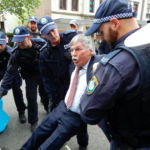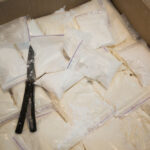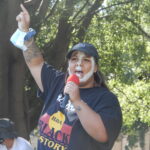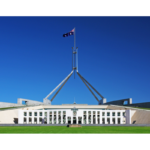Filipino President Continues Killing Spree in War Against Drugs

We recently reported on the newly elected Filipino President Rodrigo Duterte who publicly declared:
“If you are involved in drugs, I will kill you. You son of a whore, I will really kill you.”
On Friday, the President threatened to quit the United Nations and form a separate organisation with China and several African nations.
His outburst was in response to two UN human rights experts’ criticisms of the drug war he’s been waging. The experts called on the Filipino government to put a halt to the state-sanctioned extrajudicial killings of those involved suspected of being involved with illicit drugs. The local ABS CBN news service is now putting the death toll at 1,127 since May 10, the day Duterte claimed presidency.
You Take Drugs, You Will Be Murdered
During the election, the now president took a hardline stance towards drugs, promising to fill funeral parlours with the bodies of those involved in the drug trade. On June 30, in an inauguration day speech he called on the public to take matters into their own hands. “If you know of any addicts, go ahead and kill them yourself, as getting their parents to do it would be too painful,” he said.
Since early July, images started appearing on the internet of Filipino city streets lined with the bodies of those who appeared on kill lists. Much of the shootings have been carried out by the police, who claim that victims were resisting arrest. But a great number of the murders have also been undertaken by vigilante groups, who are carrying out executions under the president’s promise of impunity.
Victims are often bundled and left on the side of the road, with a sign next to them that may read “dealer,” “pusher” or “user.” The image that captured world attention was that of Jennelyn Olaires holding the body of her dead husband Michael Siaron. She claimed her husband used drugs on occasion, but never dealt them. In fact, the man actually voted for Duterte. The president later dismissed the woman’s public outcry as “melodramatic.”
President’s Hit List
But it’s not just the country’s poorthe president is taking aim at. On August 7, Duterte produced a list of 150 officials from the judiciary, local governments and police that he believes are involved in the trade of illicit drugs. And this raises questions as to whether Duterte’s drug war is a good opportunity for him to take out some political rivals.
In response to the killings, around 600,000 citizens who have an involvement with illicit drugs have turned themselves into police. This has left the nation’s already overcrowded prisons overflowing.
Foreign Governments Turn a Blind Eye
And while the news and images of Duterte’s bloodbath have made it around the world, international condemnation – like that of the two UN experts – has been thin on the ground. The United Nations Office on Drugs and Crime issued a statement of condemnation on August 3, but this was only after the prompting of over 300 civil society groups from around the world.
Foreign governments for the most part have been completely silent on the situation. US president Barak Obama hasn’t even commented on the issue. However, the US secretary of state John Kerry met with Duterte on July 27 and pledged $32 million in foreign aid, which is to be used specifically for law enforcement.
A week after receiving the donation, during a speech he gave to Filipino soldiers, Duterte actually described the US ambassador to the Philippines Philip Goldberg as “a gay son of a whore.” In response to questioning as to why he made the remarks, Duterte said that Goldberg had threatened his election campaign, when the ambassador criticised him for joking about the rape of an Australian missionary, who was assaulted and murdered during a Filipino prison riot in 1989.
However, it’s hardly surprising the US has stayed silent, the Philippines is their closest ally in the region and is of strategic importance in the current dispute over China’s claims in the South China Sea.
Australia
The Australian government has also had little to say about the mass executions transpiring on the streets of one of its Asian neighbours. This silence has prompted Sydney harm reduction group, Unharm, to start a petition calling on Australian prime minister Malcom Turnbull to publicly condemn the slaughter.
“Silence from Turnbull in the face of summary executions in the Philippines is yet more evidence that when illegal drugs are involved, normal principles of morality and justice go out the window,” Will Tregoning, director of Unharm, told Sydney Criminal Lawyers®.
Popular Support
Yet what’s happening on the ground must come as no surprise to most Filipinos, who actually voted Duterte into office on the promise of an ultra-tough on crime approach. Indeed, the promise of executing drug users and sellers was part of Duterte’s election campaign.
And he’s previously been hailed across the country for his tough approach to crime generally. During his time as mayor of Davao over the last two decades, he built up a reputation for using similar tactics to those he’s now employing.
Under his watch, over 1,000 Davao locals are said to have been executed by the Davao Death Squads, a vigilante group Duterte is reported to have strong ties to. Many of these extrajudicial killings were undertaken because the targets were suspected of involvement in drugs.
South East Asia
The Philippines is not the only South East Asian country to employ such extreme measures. Thailand’s war on drugs was launched in February 2003 by then Thai prime minister Thaksin Shinawatra.
The campaign took a zero-tolerance approach with the aim of making Thailand drug-free. Police were given quotas on arrests, and the most brutal outcome of the policy was that around 2,800 extrajudicial killings were carried out within the first three months.
And on July 29 this year, the Indonesia government executed four more prisoners on drug charges. This was the first execution since April last year, when eight people were shot dead, including Australians Andrew Chan and Myuran Sukumaran. There had been a virtual moratorium on executions in Indonesia between 2008 and 2013. However, when current Indonesian president Joko Widodo took power in October 2014, he took a tough approach against drugs.
But as countries around the world – including the US – begin to consider ending drug prohibition, how long can foreign governments stand by and silently watch as tyrants like Duterte implement such brutal and regressive policies?






